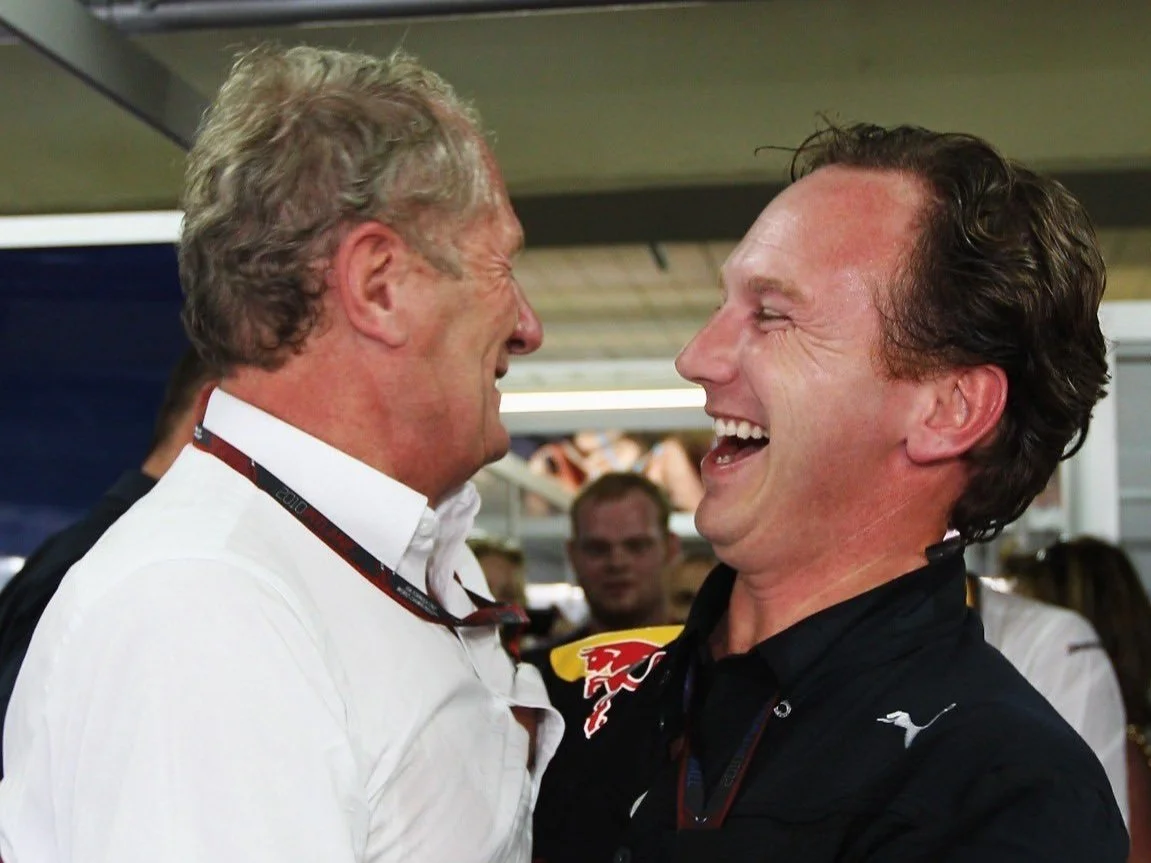The beginning of the end for Red Bull?
Last Wednesday, Red Bull announced the immediate departure of Christian Horner from the team, ending an era of more than 20 years at the helm. The decision was unexpected even for Horner himself, who in his farewell speech confessed that the news took him completely by surprise and that he hadn't expected it at all. However, the big question that remains is: what was really the reason behind his dismissal? What will happen to Horner now? And more importantly, what direction will Red Bull take following the departure of the man who led the team during its greatest moments of glory?
Photo: Red Bull Racing
So far, the specific reason behind Christian Horner's dismissal has not been revealed, but many theories have begun to circulate. Two possibilities are strongly circulating among experts and within the paddock. The first suggests that this decision was a strategic move by the team to secure the permanence of Max Verstappen, its star driver, and avoid his departure from Red Bull. The second, even more compelling, option suggests that the team has already given up the battle to retain Max, especially given the growing rumors of talks between Toto Wolff and the Dutch driver to bring him to Mercedes. In that scenario, Horner's departure would be seen as the first step in a profound internal transformation at Red Bull, starting precisely with the team principal position.
And with this transformation just beginning at the team, the big question is: what will Red Bull's path be now? Since last year, the team has seen a notable decline in performance. It went from being the dominant force in Formula 1, with almost absolute control from 2012 to 2023, to becoming the fourth-best team on the grid. This decline began when key pieces of the successful machinery began to leave. Departures such as those of Adrian Newey, Jonathan Wheatley, and other key members marked the beginning of an internal breakdown that was reflected on the track, where Red Bull began to be overtaken by McLaren, Ferrari, and Mercedes.
Now, with the departure of Christian Horner, the first official step towards a profound restructuring has been taken. How long will this process take? It is unknown. Can the team return to being the giant it was just a few years ago? There are also no certainties. And to add even more uncertainty, the possible departure of Max Verstappen coupled with the perennial problem with the second seat leaves Red Bull in a critical moment, with many more questions than answers about its future in Formula 1.
For Red Bull, this entire situation, which has been dragging on since last year, has left a deep mark on the team. It has been evident how, little by little, the team that once dominated Formula 1 has been crumbling. The biggest issue right now is the possible departure of Max Verstappen, as without the Dutch driver, Red Bull could go from being a title contender to becoming one of the weakest teams on the grid.
But it's not just about the possible loss of its star. The team is also facing multiple internal conflicts and a clear lack of direction, especially regarding its driver lineup. The second seat remains a permanent point of uncertainty, so much so that many already consider it "cursed," due to the instability and constant pressure that comes with occupying it.
On the other hand, Christian Horner's departure opens a new chapter not only for Red Bull, but also for him. Despite recent conflicts with the Austrian team, no one can deny that Horner was a key player in the team's dominance for over a decade. His experience and track record make him a very attractive figure for other smaller, developing, or newcomer teams in the top category, such as Cadillac or Alpine, who could see him as the ideal leader to drive their projects forward.

